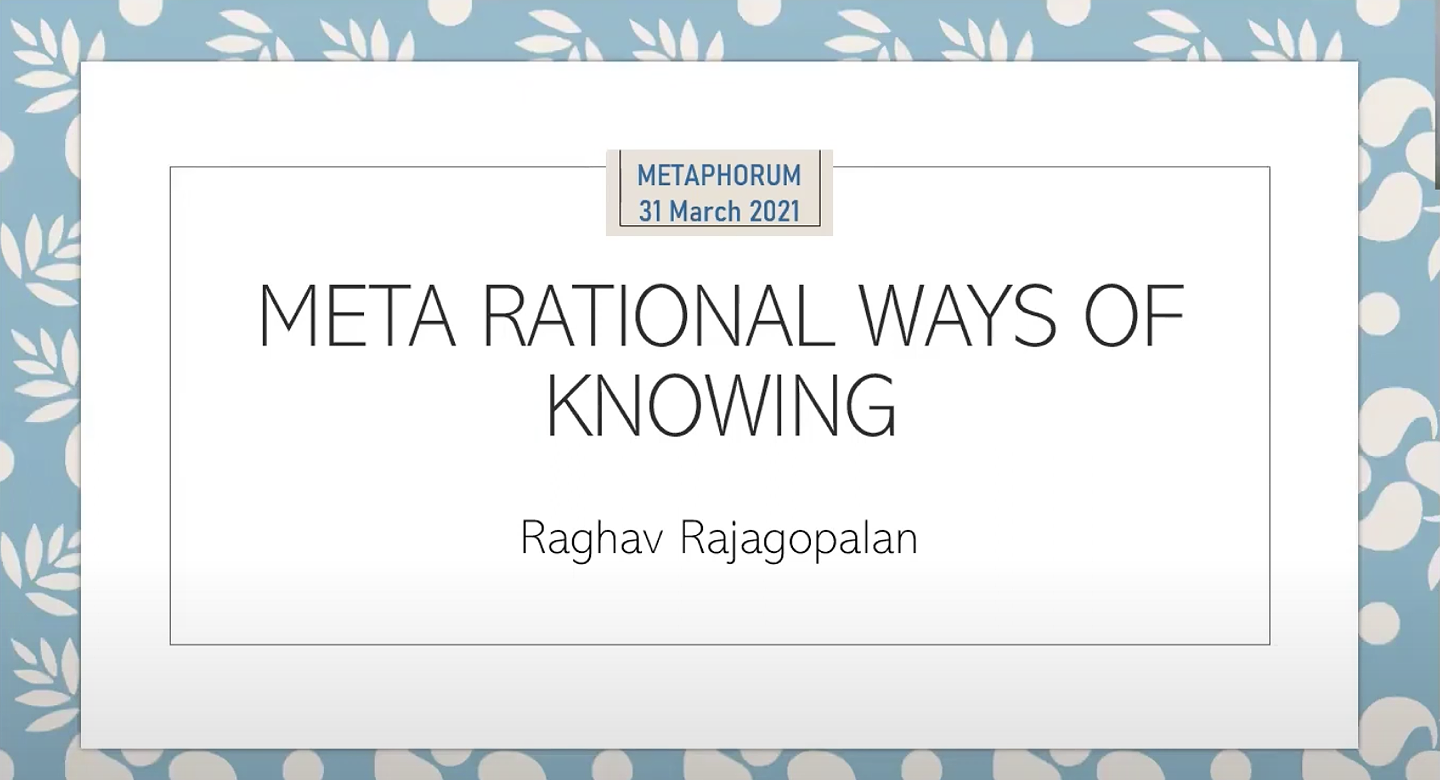
This webinar is addressed to Metaphorum, a gathering of persons who celebrate Stafford Beer’s application of cybernetic principles to organisations and social systems. My exploration of systems thinking is composed of an equal fascination with two utterly diverse aspects: one – the mental models of cybernetics, with inviolable principles of information and control in recursively nested structures, and two – the fluid and amorphous mind of Gregory Bateson and (to my mind) related ideas of enactive cognition and anticipatory patterning. These two apparently distinct mental models are, in my opinion, both partial disclosures of a single overall reality we are trying to fathom. There are mysteries in these two aspects of reality and in the potential synthesis of these models, which enthral me. My talk today will focus on the second aspect alone: the fluid and amorphous aspects of knowing, which we usually ignore. I seek to share my take on the limits and possibilities of human understanding of complex systems, which can be powerfully multiplied by approaches that go beyond the rational-analytic framework. I come from an unusual vantage point: not that of a systems expert, but of a practitioner who has worked with very diverse communities – often unlettered and marginalised: tribal farmers, fisherfolk, artisans and performing artists. Several elements determine our orientation to knowing – which information patterns we seek to sense or pick up; what sorts of information – rational and affective – and how we cross-verify, calibrate and harness it all. These aspects of our approach to knowing, which vary across cultures and disciplines, can determine how deep our understanding of systemic behaviour patterns can go. Surprisingly, disciplines like action research and cultures outside of the mainstream West fare better (systems thinkers are part of this mainstream). These non- mainstream communities have developed sophisticated wisdom approaches which provide alternate ways of fathoming deeper systemic realities. My talk will proceed as a series of snapshots. These snapshots are facets of useful mental models I have located in sources outside systems thinking literature, which help us integrate additional forms of knowing into the rational-analytic approach to systems thinking. Harnessing the meta rational ways of knowing is, according to me, the most significant frontier now before systems thinking.
Speaker Bio
Raghav Rajagopalan is the author of Immersive Systemic Knowing: Advancing Systems Thinking Beyond Rational Analysis (Springer 2020: Contemporary Systems Thinking). He is a Visiting Fellow at the Centre for Systems Studies, Hull University; a Fellow of the European School of Governance, Berlin; and a Fellow of the Sumedhas Academy for Human Context, India. Raghav has a postgraduate specialization in Rural Management, followed by a doctorate in Systems Science.
He was awarded the Margaret Mead Memorial Prize for an outstanding paper from his doctoral thesis at the 2014 International Society for the Systems Sciences Annual Conference in Washington DC. Raghav practices as a consultant in organisational and social development in India. He has experience in the diverse ways of knowing that the subcontinent has been famed for over centuries, involving practices such as yoga, meditation, various classical arts and handicrafts.
Early in his career, his rural development practice required him to unlearn much of his formal professional training and relearn significantly from diverse marginalized communities such as artisanal fisherfolk, tribal farmers and artisanal craftspersons, resulting in a discovery of the profound value of multiple ways of knowing.
